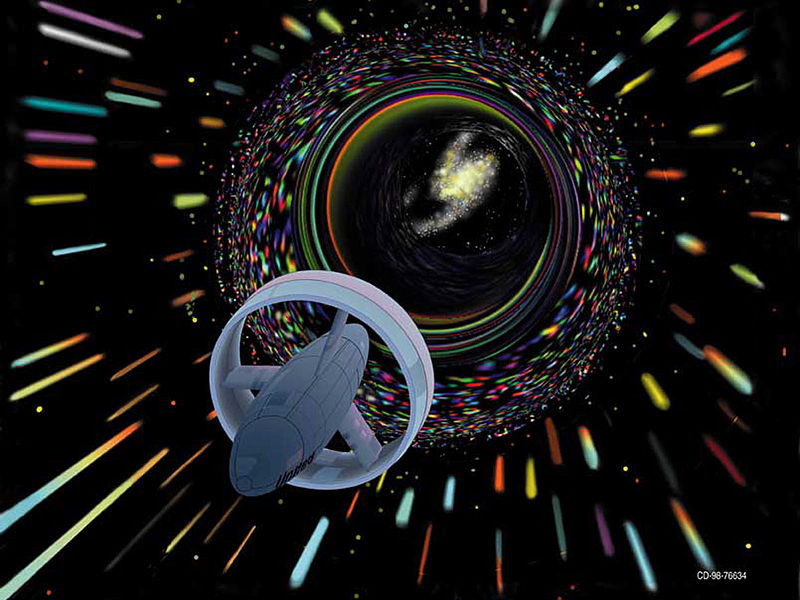Co-founder of the Planetary Society believes that man will never go beyond Mars

Louis Friedman, co-founder of the Planetary Society, has released a new book, “Human Spaceflight: From Mars to the Stars,” an opener from which was published Friday on Scientific America . Friedman again raised the issue of travel in outer space with the participation of humans and robots. Discussions on this topic have been actively conducted for several decades. According to Friedman, a person will be able to get to Mars and populate it. But on this the space walk of man will end. Then it's up to the robots.
The author of the book is optimistic about the advantages of robotics and pessimistic about the capabilities of astronautics in terms of sending a person into space. Friedman believes that interstellar travel is impossible, because the distances are simply huge. The main objection of Friedman is that modern travel technology in space does not allow us to talk about any kind of long-term expedition to anywhere except Mars. Most of the ideas lie in the plane of science fiction, or at least theoretical physics. Implementation or confirmation of existing theories in this direction is not yet available.
Nevertheless, it is not worth immediately agreeing with the opinion of Friedman. After all, Arthur Clark said: “When an outstanding, but already elderly scientist declares that any idea is feasible, he is almost always right. When he claims that an idea is not feasible, he is most likely wrong. ” Friedman is undoubtedly an outstanding scientist, an aerospace engineer. At the same time, he is already an elderly person (there is no negative subtext here, we compare the facts with Clark's statement). Not only Friedman is pessimistic about the idea of long-distance space travel. Nevertheless, in the bowels of NASA, several projects of engines for interstellar ships are being developed at once. One of these projects, not the author’s development of agency specialists, generally indicates the possibility of obtaining energy for the movement, it is not clear where it came from .
Among other things, Friedman says nothing about why people cannot populate the satellites of the planets of the solar system and the asteroid belt. He believes that the future of mankind is a “virtual exploration of the cosmos,” with emissaries, robots, artificial intelligence and bioengineering. Expeditions will be sent to other luminaries in order to study, but not populate, other planetary systems.
Why does he consider it possible to settle Mars? Friedman argues that it is always impossible to stay on Earth, it is unacceptable from a cultural point of view, or from the point of view of common sense. Culturologically - in the sense that people are a race of curious travelers. From the point of view of common sense, survival requires presence on other planets (the same point of view is held by Elon Musk). Do not "lay all the eggs only in the basket of the Earth." Only in this case, man can become an interplanetary species. Despite the fact that Mars is dry, cold, isolated, nevertheless it is the planet most suitable for settlement from all known to us. That is why, according to the co-founder of the Planetary Society, Mars remains a goal for humans. This is a laboratory where human evolution will be tested.
Apparently, Friedman, on the one hand, is a follower of Robert Zubrin, who considered Mars to be the next milestone in the development of mankind and a home for new generations. Nevertheless, the author of the book on space travel is largely reminiscent of Richard van der Riet Woolley . This astronomer believed that space travel was impossible at all - from the point of view that such an event would require more money and resources than is physically possible.
Richard Woolley was able to make sure that space travel is possible. He lived enough to catch a man landing on the moon. In this sense, I would like Friedman to see that he was mistaken in terms of the impossibility of making interstellar travels by people, not robots.
